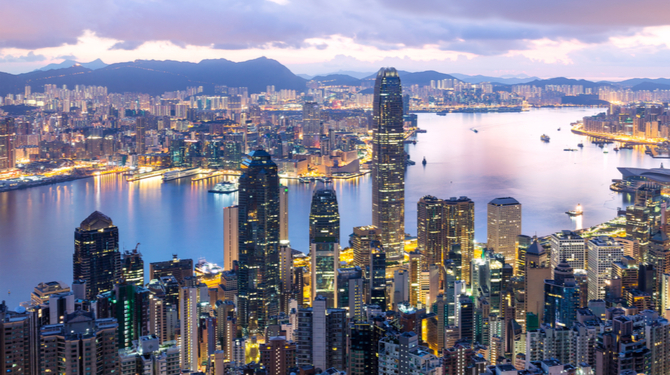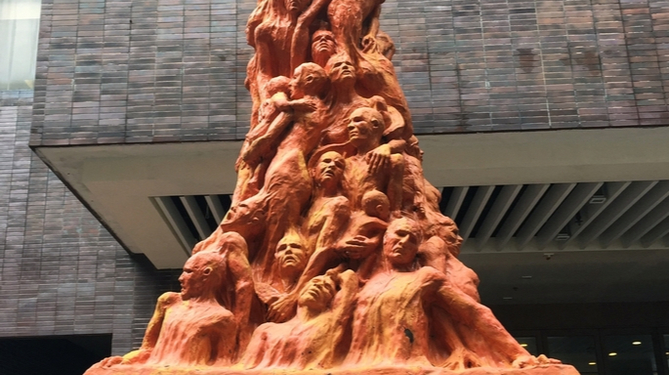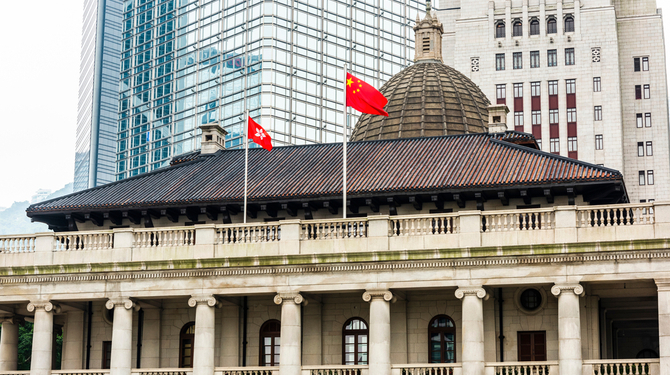Sign up for our free daily newsletter
YOUR PRIVACY - PLEASE READ CAREFULLY DATA PROTECTION STATEMENT
Below we explain how we will communicate with you. We set out how we use your data in our Privacy Policy.
Global City Media, and its associated brands will use the lawful basis of legitimate interests to use
the
contact details you have supplied to contact you regarding our publications, events, training,
reader
research, and other relevant information. We will always give you the option to opt out of our
marketing.
By clicking submit, you confirm that you understand and accept the Terms & Conditions and Privacy Policy
Overseas judges sitting in Hong Kong’s top court are not barred by their nationality from hearing controversial cases about Chinese national security, according to the city’s chief justice Andrew Cheung.
Cheung said the foreign judiciary’s first-hand knowledge about the Hong Kong bench could be the “best evidence” of the rule of law in the Special Administrative Region.
Cheung also defended fellow local judges’ role in applying the controversial national security law (NSL) imposed by Beijing, declaring that “judicial independence in Hong Kong exists as a fact”.
Leading overseas judges from the UK, Australia, New Zealand and Canada have sat in Hong Kong’s Court of Final Appeal (CFA) since the handover to China in 1997, widely perceived as a testament to international confidence in the city’s rule of law.
There are currently 16 overseas judges appointed as non-permanent judges at the CFA, including president and deputy president of the UK Supreme Court, Lord Reed and Lord Hodge. Some lawmakers and activists from the UK and Canada have questioned the arrangement, saying this lends legitimacy to the controversial NSL.
“I can say that if you look at the NSL, there is no nationality requirement regarding the judges that are eligible for designation as designated judges at any levels of court,” Cheung told Global Legal Post at last week's opening of the Hong Kong legal year ceremony.
However, he qualified his answer by noting that since July 2020, there was only one substantive appeal that reached the CFA in which no overseas judge was involved. The remaining two cases heard were requests that conventionally did not involve overseas judges.
Cheung cited Lord Hodge’s brief appearance in the Hong Kong bench to take the judicial oath and hear two non-NSL cases in late November as supplying “best evidence” about confidence in Hong Kong courts.
“The very fact that Lord Hodge came to Hong Kong and heard cases, and the [previous] statements given by the UK Supreme Court about their continued support and participation in the CFA, I believe, speak for themselves,” Cheung said, adding that six overseas judges extended their terms during last year – although others declined to renew.
Lord Reed, meanwhile, told a seminar in Oxford that such judges could give ”practical support” to the Hong Kong judiciary. Their withdrawal would be “a matter of regret to the Chinese authorities, not to say the loss of face” but would “achieve nothing for Hong Kong”.
Reed said: “British judges have to think very carefully indeed about whether they can continue sitting there. We have taken the view so far that, on balance, the benefits of our continuing to sit there outweigh the risk to our reputation, which I realise we run and we keep it under review.”
That assessment, he said, was finely balanced.
There have also been criticisms that Hong Kong’s chief executive Carrie Lam could decide on a list of judges to hear national security cases, including Cheung himself. Responding, the chief justice said the NSL would not impact the impartiality of Hong Kong’s courts.
He noted the actual assignment of judges to individual cases still rested on senior judicial leaders, while all those selected had taken a judicial oath. However, he dodged a question on the exact number of national security judges, saying the tally and the criteria are within the purview of Hong Kong’s chief executive.
He also said judges tasked with hearing national security cases had previously received threats, likened by him – and the Hong Kong justice department – to attacks on the city’s rule of law.
Email your news and story ideas to: [email protected]











